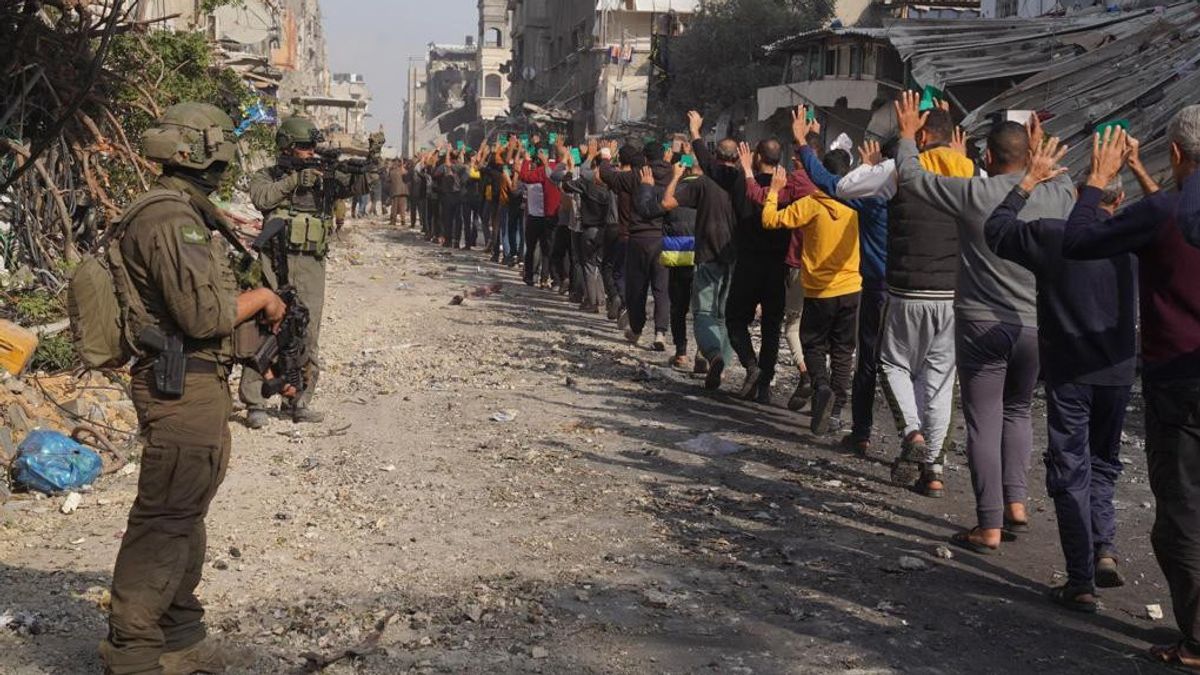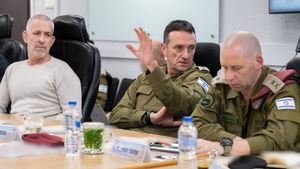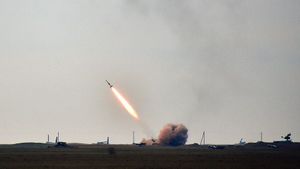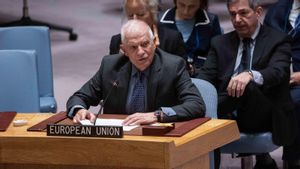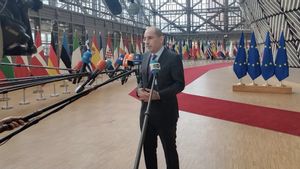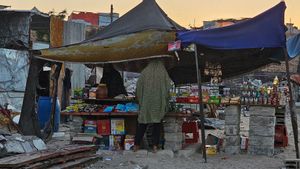JAKARTA - About 150 Palestinians who were arrested in Israel's military operation in the Gaza Strip and released on Monday said they experienced torture and ill-treatment during their detention, Palestinian officials said.
Border officials said the detainees, including two members of the Palestinian Red Crescent Society (PRCS) who had been held for 50 days, were released through the Israeli-controlled Kerem Shalom crossing in southern Gaza.
Several people were hospitalized, complaining of abuse and ill-treatment inside Israeli prisons, they said. Many of those released said they had been asked whether they had ties to the Hamas militant group, which controls Gaza. However, the Israeli military denied these accusations.
"I entered prison with two legs and came out with one leg," said Sufian Abu Salah, by telephone from hospital, adding that he had no history of chronic illness, as reported by Reuters, April 16.
"I had inflammation in my legs and they (Israeli soldiers) refused to take me to hospital. A week later the inflammation spread and it became gangrene. They took me to hospital where I underwent surgery," explained Abu Salah, adding that he had been beaten by the kidnappers.
Abu Salah, a resident of the town of Abassan east of Khan Younis, told Reuters he was arrested by Israeli forces at the end of February from a school where he and his family had taken refuge.
The father of four, who had no history of illness before his arrest, said he did not know where he was being held, but "it looked like an army camp, not a prison."
Gaza's Civil Emergency Service said the captives freed on Monday had been subjected to "various kinds of abuse and torture" and many had been hospitalized after their release. However, they did not provide examples of any type of physical or mental torture.
Palestinian and international human rights groups say they are aware of claims of abuse in Israeli prisons. They say Israel has refused to reveal information about Gaza detainees, including how many people are being held and where.
In December, the UN Office of Human Rights (OHCHR) said it had received numerous reports of mass detentions, ill-treatment, and forced disappearances of Palestinians in northern Gaza by the Israeli military.
Yesterday, the International Committee of the Red Cross (ICRC) said it had not been able to visit Palestinian prisoners in Israeli prisons since October, when local authorities suspended visiting permits. However, they were aware of media reports about the high rate of arrests by Israeli forces, as well as references to poor treatment of detainees.
"Detainees originating from occupied territories are considered protected persons under the Fourth Geneva Convention of 1949," stressed the ICRC.
"The ICRC must be informed about all protected persons deprived of their liberty, ensuring ICRC delegates have access to them wherever they are detained, including in interrogation centers, prisons, hospitals or military camps," he continued.
Meanwhile, the Palestinian Prisoners Association said there were at least 9,100 Palestinians from Gaza and the West Bank detained in Israel. The figure does not include those arrested in Gaza since the start of the war on October 7, as Israel has not disclosed the number related to its offensive.
SEE ALSO:
The association accused Israel of continuing to withhold information about the people it holds in Gaza, including where they are being held.
Separately, the Israeli military said in a statement that it acted in accordance with Israeli and international law. Those arrested have access to food, water, medicine, and adequate clothing.
"The IDF operates to restore security to Israeli citizens, bring hostages home, and to achieve war objectives while operating in accordance with international law," the Israel Defense Forces (IDF) said, adding specific complaints about inappropriate behavior would be forwarded to relevant authorities. relevant to review.
The English, Chinese, Japanese, Arabic, and French versions are automatically generated by the AI. So there may still be inaccuracies in translating, please always see Indonesian as our main language. (system supported by DigitalSiber.id)
